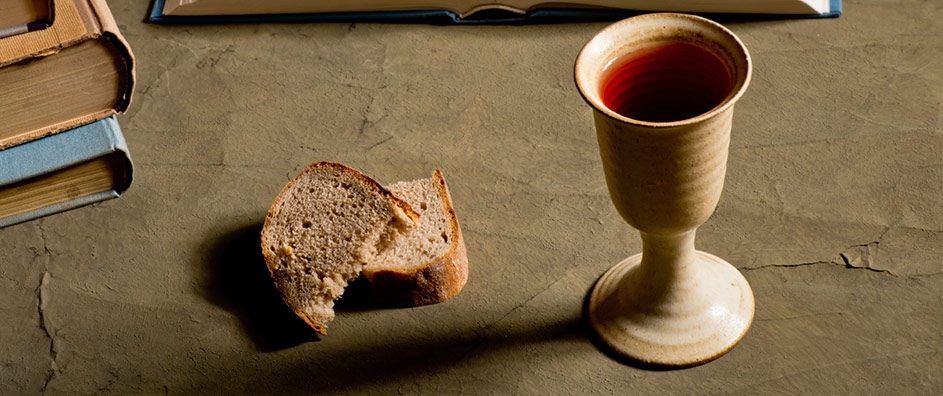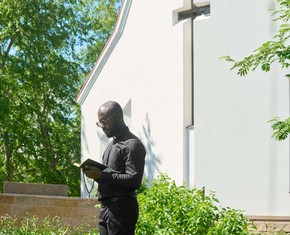The views expressed in our content reflect individual perspectives and do not represent the authoritative views of the Baha'i Faith.
Lot–Abraham’s brave apostle–remained undaunted by the dangers inherent in taking the news of Abraham’s revelation to a place reminiscent of Eden and Egypt.
He moved to the lush region of promise and peril near Sodom and pitched his tent, an act much more than just a comment on housekeeping. In a spiritual sense, facing a tent in a certain direction is an invitation to a specific group of people to investigate one’s beliefs. Lot boldly oriented his tent toward Sodom, a city filled with men who “were wicked and sinners before the Lord exceedingly.”
Soon after Lot pitched his tent toward Sodom, he became a prisoner of war.
The fracas began when a group of four Syrian kings attacked Sodom, Gomorrah, and two other nearby settlements. Sodom and Gomorrah fell, both of them looted and pillaged. Many of the local inhabitants were taken as prisoners—probably destined to serve as slaves when the armies get back to Syria—with Lot among the captives. When an escapee managed to find Abraham and tell him what happened, Abraham recruited a band of fighters from among the men of his household. They pursued the raiders, attacked them by night, and recovered Lot as well as the other captives and the stolen valuables.
As soon as Abraham returned with Lot and the loot, he was met by a group of grateful local rulers. One of them, the king of Sodom, thanked Abraham by offering to let him keep all of the goods he recovered. Abraham let his fighters take a share of the wealth as repayment for their efforts, but he himself refused to accept anything, explaining the refusal with a quiet hint about the ignoble nature of Sodom’s king: “I have solemnly promised the Lord God Most High, Creator of heaven and earth, that I will not take so much as a single thread or sandal thong from you. Otherwise, you might say ‘I am the one who made [Abraham] rich.’”
What Abraham did accept, by contrast, was a blessing from a mysterious king who suddenly materialized among the other rulers who came to celebrate the victory. The king, named Melchizedek, approached Abraham, gave him bread and wine, and blessed him in the name of the “God Most High, Creator of heaven and earth.”
The Torah and the New Testament agree that Melchizedek wasn’t an ordinary king. He was, rather, a “priest of the Most High God” who is “Without father, without mother, without genealogy, having neither beginning of days nor end of life . . .” Even his name was symbolic, because Melchizedek means king of righteousness and the place where he rules—Salem—was the place of peace.
When Melchizedek blessed Abraham and fed him wine and bread, it can be understood as a transcendent symbol of the way in which the Holy Spirit has been conferred upon Abraham in his role as a messenger of God. In a subsequent age, the same thing will happen to Jesus; he will be anointed by the Holy Spirit/King of righteousness/Melchizedek, and will join Abraham in becoming “another priest” who has spiritual authority “according to the order of Melchizedek.”
The bread and wine used by Melchizedek are destined to become symbols of enlightenment and remembrance in two major religions: Judaism and Christianity. After candles are lit to brighten the Sabbath evening, Jews will celebrate their covenant with God by drinking from a cup of red wine or grape juice and eating a braided loaf of challah bread. Christians will partake of bread and wine during the ritual of communion, using the mouthful of physical nourishment as an embodiment of the spiritual sustenance provided by Jesus. The Baha’i teachings explain:
The purport of these words is that, through the manifestation of Christ, the sacred teachings, which are everlasting grace, were spread abroad, the lights of guidance shone forth, and the spirit of life was conferred upon human realities. …the bread and wine were symbols, meaning: My grace and My perfections have been given you, and since you have partaken of this manifold grace, you have attained everlasting life and received your share and portion of the heavenly sustenance. – Abdu’l-Baha, Some Answered Questions, newly revised edition, p. 112.
After being blessed, Abraham tithes a tenth of the spoils of war to Melchizedek, an act of respect that demonstrates by example the way in which one might want to give a portion of one’s possessions to one’s religion. Abraham does not—as far as we know—turn this act into a law for his followers, but it is one of the scriptural incidents on which the subsequent practice of tithing will be based.
After the war is over and peace reigns, Lot and his family returned to Sodom. His wife, happy with the city, enjoyed the comforts and amusements it offered. Their two daughters grow old enough to become engaged to local men. Although Lot doesn’t make any progress in converting local residents to the religion of Abraham, he was not necessarily unhappy with the prospect of spending the rest of his life there.
















Comments
Sign in or create an account
Continue with Googleor